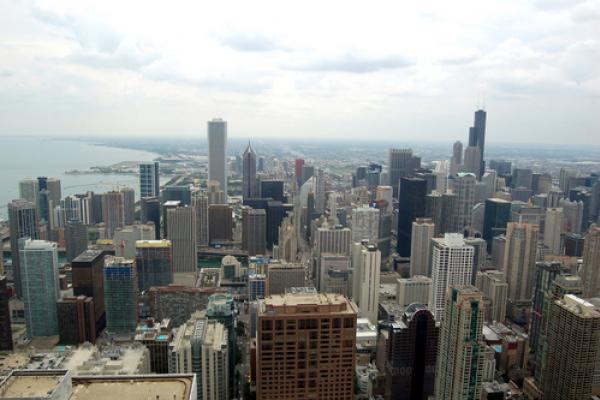My city of Chicago, known as the City with Big Shoulders, is now on its knees. But it’s not prostrate in some humble submission to God. No. Instead Chicago is weeping from the emotional exhaustion of having to bury too many youth who have been murdered.
Last year Chicago recorded 2,400 shootings and more than 505 murders, of which more than 108 were teenagers of color from seven violent communities. Already 2013, with less than two months into its birth, has seen 49 murders. Those of us on the ground seeking to bring change to this pandemic of violence know that if the Chicago cold winters are this violent, then the hot summers will not cool off. On top of the hard and constant news about those who are killing and being killed, Chicago Police stats show that only 34 percent of the murders get solved within one year. If the detectives have two years on a case, then the rate barely reaches 50 percent. The national average of murders solved is 64 percent. New York’s rate is only 60 percent. In Chicago, though, one has a 50-50 chance of getting away with a murder.
We scream and cry over these senseless murders of our youth in mostly communities of poverty, yet our resources don’t go to solving these crimes as quickly as they go to arresting drug dealers and users. Most Chicagoans would agree that we need more police who are able to solve these murders rather than focus on the petty arrests of the dope boys on the corners. Contributing to the failures of solving these murders is the mindset of “No Snitches” that stems from a lack of trust from the police and, consequently, hurts the victims of these crimes.
Our communities have lost their sense of urgency over this plague of violence that is smothering our land. There was a time when people were shocked if someone got shot. Now people just ask, “Did they die?” Desensitization of the violence has sadly become the norm. Parents won’t let their kids attend afterschool programs, even in their own communities, unless they have a ride back home. When I sit with some of the different gang leaders I know, they tell me that the kids who are doing the shootings are getting younger and younger — and that they don’t listen or care about what they are doing.
The power of change has to come from each local community’s efforts to mobilize both on the ground and politically. Our Hip Hop Church, The House Covenant Church, and Lawndale Community Church are engaged in both of these, working on everyday issues and practical approaches to diminish the violence. Through our Lawndale Christian Legal Center, we are building relationships, one-on-one, with leaders in the community who have been — or are still a part of — the violence. We are working with other leaders around the city to receive 100,000 signatures on a petition asking our elected officials to pass commonsense gun laws that include getting assault weapons off the streets.
Guns are too easily come by in these communities. This gun pipeline enters the communities through people who buy weapons without any background checks and are then able to sell the guns to others as if they were selling a pair of shoes to a friend. One of the most notorious gun shops in Illinois is Chucks Gun Shop, just outside the city limits. They sell their guns to anyone. And half, if not more, of the guns used to kill young people in Chicago come from that shop! Many guns recovered from crimes in Chicago were originally bought at Chucks. Of the 1,375 guns related to crimes committed from 2008 to 2012, 268 of them were traced back to Chucks. That’s one-in-five guns!
There are so many leaks in the bucket of justice that those who are seeking to seal those leaks either drown in the process or feel like no one cares. We must keep this issue of gun control on the front page of our papers. We must keep our congressperson’s number on speed dial, pressuring them to step up or step off. We must rally our community to be the light where there is no light. We must do all this because it is a matter of life and death.
I was talking with one of our youth last week and asked what he thought about his future. He flat out said, “I don’t have a future. I have today. Matter of fact, I really just have this moment.” When I probed more, he told me he didn’t believe he had a future because two of his uncles were murdered, his father was killed, and he went on to describe how another six or seven other significant men in his life were either murdered or are in prison. He finished by saying, “This is why I say that, Pastor Phil. Cause I don’t see how I even count. Cause if I don’t count, I don’t matter. And if I don’t matter, why trip on any kind of future, because the future hurts too much to think about it.”
These are the kids I serve and love. I work to expose them to real hope and real lasting change they can believe in, so they can live to tell about it.
Pastor Phil Jackson, is part of the Emerging Voices Project and a pastor at Lawndale Community Church. www.thahouse.org www.thafirehouse.org www.lawndalechurch.org.
Photo: Chicago skyline, nialat / Shutterstock.com
Got something to say about what you're reading? We value your feedback!
